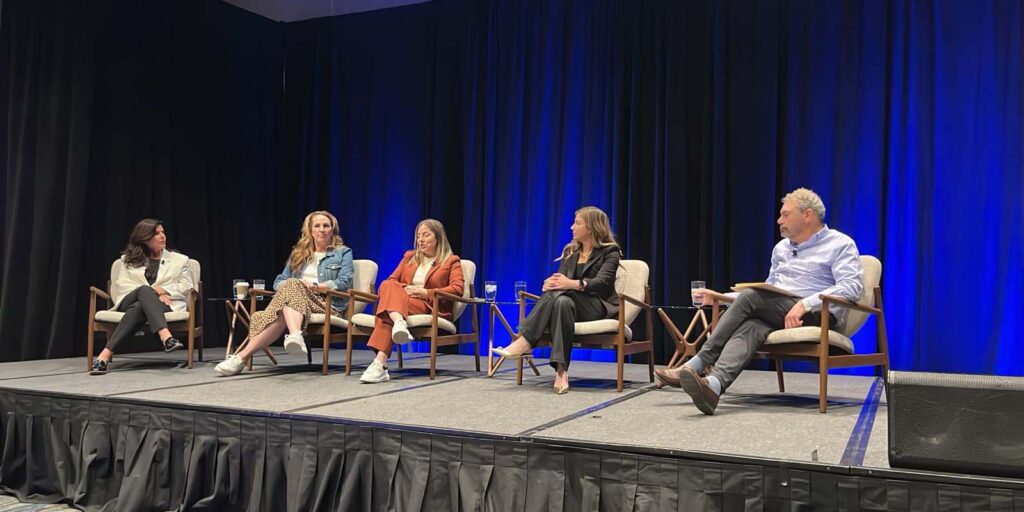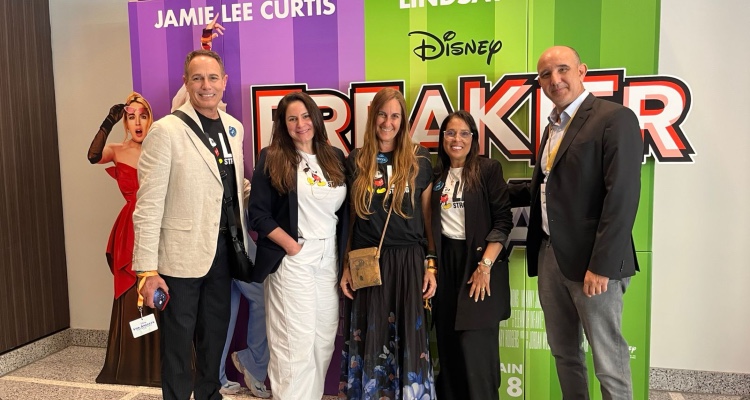As part of the Kidscreen Summit 2025, four major players in the world of children’s entertainment – Mattel, Spin Master, Moose Toys and Bonkers Toys – gathered for a panel entitled ‘Toy Talk: Exploring content brand potential with the leaders of play’ to discuss how intellectual property (IP) is conquering the toy market and its impact on retail.

Moderated by Steven Ekstract, Managing Director of Global Licensing Advisors, the panel consisted of leading industry executives: Lisa Berlin Wright, Head of Licensing at Bonkers Toys; Hollie Holmes, VP of Global Licensing at Moose Toys; Meredith Lawson Norrie, VP of Global Licensing & Consumer Products at Mattel; and Tracy Warshauer, Global Brand & Marketing Executive at Spin Master. Together, they offered an honest look at the challenges and opportunities IPs face in generating successful deals and captivating consumers.
A recurring theme during the discussion was the importance of audience engagement. Lisa Berlin Wright of Bonkers Toys stressed that the success of an IP depends largely on the relationship it builds with followers on social platforms. According to Wright, the key is to ‘create content that resonates with the audience and sustain that engagement over time’, suggesting that an IP needs to be present in children’s lives for years, not just months.
In line with this view, Spin Master’s Tracy Warshauer underlined the critical role of social and digital media in fostering a brand’s organic growth. She cited the success of ‘Miss Rachel’, whose authentic connection with its audience and ability to engage parents in the learning process allowed for a natural transition to consumer products. This kind of direct interaction, Warshauer said, is essential to a successful launch and to building a loyal fan base.
Meredith Lawson Norrie of Mattel also emphasized the need to develop cross-platform strategies to ensure that content effectively reaches children. According to Norrie, children consume content in a fragmented way across platforms such as YouTube and other interactive experiences. In this sense, having an approach that embraces diverse forms of communication is essential to maximize impact and ensure effective marketing.
One of the most interesting points was the discussion on how to measure success in a world where information is more accessible than ever. Holmes, from Moose Toys, commented that while follower and engagement figures are impressive, it is the quality of engagement that really matters. ‘We need to create that bond with consumers, because they are the ones who will ultimately buy our products,’ he said.
Berlin Wright added that access to advanced measurement tools, such as those provided by Nielsen and other platforms, has made decision-making easier, but risks remain, especially when it comes to innovations or new IPs.
Finally, Norrie highlighted a recurring phenomenon: the power of nostalgia. Mattel’s recent revival of classic content demonstrates how IPs with an established fan base can remain profitable even in a changing environment. This approach, based on properties with an emotional attachment to the audience, allows companies to play it safer in a market full of uncertainty.
The panel concluded with a reflection on the future of IPs and retail, highlighting that success depends not only on the quality of the product, but also on how it connects with its audience across multiple channels and platforms. The executives agreed that the most successful brands are those that manage to be relevant in the daily lives of children and their parents, cultivating a relationship that goes beyond the simple act of buying a toy.







